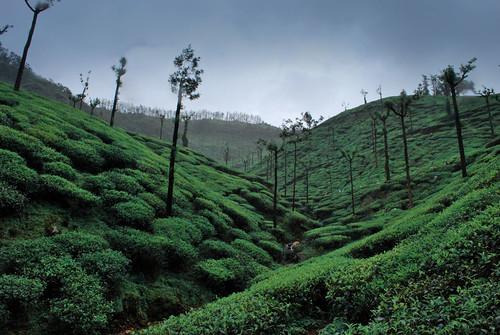Green Tea Catechin Reverses the Effect of DHT in Prostate Cancer Cells
When it comes to cancer-related deaths in men, prostate cancer is topped only by lung cancer, which is the number one leading cause of cancer deaths in both sexes. Cancer itself is second only to heart disease in death rates.
Green tea's anti-cancer effects are well known by now, but it's not always clear how exactly green tea works against different types cancer. In most cases, the reason behind the health benefits is one of the catechins of green tea – epigallocatechin gallate (EGCG), to be precise.
The same is apparently true with prostate cancer as well. Thomas et al. studied the effect of EGCG on different cell lines involved in prostate cancer. They found that green tea induced death in prostate cancer cells. In addition, when dihydrotestosterone (DHT) was present, the effect was even greater.
Androgens and prostate cancer
DHT is an androgen, which is a generic term for compounds that stimulate or control the development of male charasteristics. Androgens are also a key element in regulating prostate growth. That's why androgen withdrawal is used as a treatment for prostate cancer.
However, once the cancer develops past a certain stage, anti-androgen therapy stops working. The cancer then turns to other ways of growing, one of which is insulin-like growth factor (IGF-1). This makes treating prostate cancer challenging.
Green tea and prostate cancer
In the study, EGCG decreased the proliferation of both the androgen-sensitive and androgen-insensitive prostate cancer cells. The effect was dose-dependent. At the highest dose, the proliferation of the androgen-insensitive cells was decreased by 88.2% and 87.5%. Androgen-sensitive cell proliferation was cut by 59.7%.
With smaller doses, EGCG had only an anti-proliferative effect, whereas higher doses caused actual cell death in the cancer cells. The amount of dead cancer cells more than doubled with the larger doses.
DHT, green tea and prostate cancer
When DHT was added to the androgen-sensitive cells, the growth of cancer cells increased dose-dependently at first. However, after the amount of DHT passed a certain point, the proliferation began to decrease. At the second largest dose, proliferation had decreased below the control cells, and at the largest dose it was almost completely stopped.
When both DHT and ECGC were used on androgen-sensitive cells, cancer cell growth was reduced more than when using only DHT or ECGC. This means DHT and ECGC somehow work together to produce an anti-cancer effect.
The authors also note that in the presence of DHT, the cells became sensitized to EGCG, so that a dose of EGCG that normally wouldn't cause cell death now caused it. IGF-1, on the other hand, did not have this sensitizing effect.
Conclusion
Green tea and its main polyphenol, EGCG, is effective in inhibiting prostate cancer cell growth. This anti-cancer effect is seen regardless of whether the cancer cell line is sensitive to androgens or not. In the presence of DHT, green tea becomes more effective.
For more information on green tea, see these posts:
Caffeine and Polyphenol Contents of Green Tea, Black Tea, Oolong Tea & Pu-erh Tea
How Black Pepper Increases the Bioavailability of the Healthiest Green Tea Catechin
Drinking 10 Cups of Green Tea Daily and Not Smoking Could Add 12 Years to Your Life
Green Tea, Black Tea & Oolong Tea Increase Insulin Activity by More than 1500%









6 kommenttia:
The ECGC-DHT connection is a good line and helps debunk the 70-year old myth that "androgen causes - castration cures" prostate cancer.
For more information on out-of-the-box thinking about prostate cancer -- See:
http://FitCare.org.uk/epidemic/
For convivial discussion about non-conventional approaches to managing prostate cancer -- GoTo:
http://health.groups.yahoo.com/group/FitCare/
All the best!
Georgia Sam
Hi, I saw your blog on Longecity where you posted a review of ashwagandha I believe it was. Anyway, I've been drinking green tea for almost 3 weeks now and I must say Green tea has improved my motivation levels, but sadly my libido is still dead.
Anyway, I also drink black tea everyday. I read that black tea can reduce DHT levels. Do you think black tea might be the cause of my lowered libido as DHT is very important for libido?
@chroncile,
Unless you drink liters of the stuff, I doubt it has a marked effect. You could do an experiment and quit drinking black tea for a month or so, of course, and let us know what happens :)
- JLL
Will do, but do you think it's necessary to do it for a month? I was thinking maybe 2 or 3 weeks would be long enough.
@chroncile,
I guess you would notice a difference in how you feel in a few weeks if there is any.
- JLL
Well it's been a few weeks and I can safely say that my libido has not changed. Oh well.
Post a Comment